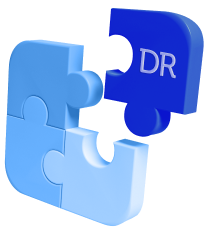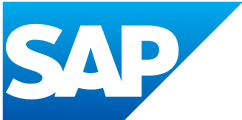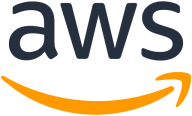White-Label SaaS
A white-label SaaS is an unbranded Software-as-a-Service (SaaS) product that's purchased by a company and rebranded as their own.
What Is a White-Label SaaS?
White-label SaaS refers to a Software-as-a-Service (SaaS) product that is rebranded and sold by a company as their own. In this model, a company purchases a SaaS product from a provider, removes the original branding, and replaces it with their own branding. They then offer the rebranded product to their customers as if it were their own software.
White-label SaaS is similar to white-label products in physical stores, where products are made by one company and then packaged and sold by other companies under various brand names.
This approach allows companies to quickly bring a software product to market without having to invest in the development of the product. It is commonly used by resellers, marketing specialists, and startups looking to offer software solutions without the need for extensive development or technical expertise.

What Are the Different Types of White-Label SaaS?
White-label SaaS encompasses various types of software solutions that can be rebranded and resold by businesses. Some examples of white-label SaaS include:
White-Label E-commerce Platforms
These allow businesses to create and manage their own branded online stores. Examples include Shopify.
White-Label Content Management Systems (CMS)
Businesses can build and manage websites under their own brand. Examples include WordPress, Joomla.
White-Label CRM Software
Helps businesses manage customer interactions, sales, and marketing activities. Examples include Salesforce, HubSpot.
White-Label Email Marketing Platforms
Businesses can create and send branded marketing campaigns and newsletters. Examples include MailChimp, Sendinblue.
White-Label Communication and Collaboration Tools
Provide branded messaging, video conferencing, and team collaboration. Examples include Slack, Microsoft Teams.
White-Label Learning Management Systems (LMS)
Enable businesses to create and deliver branded online courses and training programs. Examples include Moodle, TalentLMS.
What Are the Benefits of White-Label SaaS Solutions?
Faster Time-to-Market
Implementing a white-label SaaS solution can speed up the time-to-market for businesses looking to launch new services or products. Rather than spending time on development, companies can quickly rebrand and deploy existing solutions.
Focus on Core Competencies
Utilizing white-label SaaS solutions allows businesses to focus on their core competencies and strategic initiatives, rather than getting bogged down in software development and maintenance efforts. This can lead to increased productivity and better allocation of resources.
Cost Savings
White-label SaaS products are often more cost-effective than building custom software solutions from scratch. This can result in significant cost savings for businesses and agencies, making it a cost-efficient option.
Scalability and Flexibility
White-label SaaS products are often scalable and flexible, allowing businesses to easily adjust to changing market demands and scale their operations as needed. This flexibility enables companies to adapt to growth opportunities and evolving customer needs.
Market Reach Expansion
White-labeling allows software developers to reach new and wider markets by enabling resellers to brand the software under their own identity. This strategy increases the potential customer base and can lead to business growth.
Accelerated Responsiveness
Adopting a white-label solution can speed up the process of meeting customer demands. Rather than spending time developing their own solutions, companies can quickly deploy white-label solutions, acquire customers, and continue to provide branded services promptly.
What Are the Challenges and Limitations of White-Label SaaS Solutions?
White-label SaaS solutions come with their own set of challenges that businesses need to consider. Some of the common challenges include:
Customization Limitations
While white-label solutions provide branding opportunities, the extent of customization may be restricted in comparison to developing a proprietary solution. This constraint could hinder the ability to tailor the solution to specific requirements or preferences.
Provider Dependency
Businesses that rely on white-label SaaS solutions are reliant on the provider for updates, feature enhancements, and support. Any delays or insufficient support from the provider could impact the business’s operations and its capacity to meet customer demands.
Data Security and Privacy Concerns
Utilizing a third-party solution involves entrusting sensitive data to another company, prompting concerns about security and privacy. Businesses must ensure that the provider has robust security measures and stringent privacy policies in place to safeguard data from unauthorized access or breaches.
Lack of Differentiation
Given that white-label solutions are commonly utilized by multiple businesses, distinguishing one’s offering from competitors using the same solution can be challenging. This challenge may impede efforts to establish a unique brand identity and retain customers effectively.
Integration Complexities
Integrating a white-label solution with existing systems and technologies can be intricate and may necessitate additional development efforts. This complexity can introduce challenges in synchronizing data, ensuring compatibility, and maintaining a seamless user experience across diverse platforms.
Limited Flexibility and Scalability
Certain white-label solutions may not provide the flexibility or scalability required to address unique business needs or to contend with rising user demands. This limitation can curtail growth opportunities and hinder the expansion of the business
Related Terms
People also ask
What are white-label SaaS platforms?
White-label SaaS platforms let businesses rebrand and customize existing software solutions, enabling them to offer their own branded products without starting from scratch.



